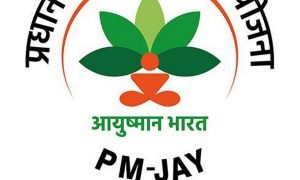Yoga aids in boosting both physical and mental health and can be especially beneficial for women who are more likely to juggle multiple things at once. An expert shares his insights.
International Yoga Day is celebrated on June 21 every year and the day aims to raise and spread awareness about many health benefits of yoga – an ancient Indian practice. Not just physical health, yoga greatly helps manage one’s mental health too, say experts. Ahead of International Yoga Day 2024, Saurabh Bothra, CEO & Certified Yoga Instructor, Habuild, shares some key tips and effective asanas that especially help women, who are mostly juggling multiple responsibilities.
International Yoga Day: 5 Yoga Asanas For Women’s Well-Being
Saurabh Bothra says, “Modern living as we know of, is famous for its stressors and for women, it can be even more stressful. Every woman, regardless of her daily schedule, should find an hour to focus on her body and mind and take care of her well-being. In this busy world, you can create a healing sanctuary on your mat to recharge every day. Yoga can show you its healthy rewards if done consistently, but I would like to give a special mention to these five asanas that every woman should practise.” Check out the 5 asanas below:
1. Malasana:
Benefits:
– Opens up the hips, groin, and lower back, improving flexibility and mobility.
– Strengthens the core muscles and stretches the ankles, relieving tension.
How to practise:
– Squat down with feet flat on the floor, slightly wider than hip-width apart.
– Press your elbows against your inner knees.
– Bring your palms together at the heart centre.
– Hold the position for 30 seconds.

2. Baddha Konasana:
Benefits:
– Stretches inner thighs and groin.
– Stimulates abdominal organs.
– Relieves menstrual discomfort and improves circulation in the pelvic area.
How to do:
– Sit with legs extended.
– Bend knees and bring soles of feet together.
– Hold feet with hands as if opening pages of a book.
– Sit up tall with a long spine while keeping your shoulder blades on your back.
– Shoulders should be moving away from your ears.
Also Read : World Sickle Cell Day 2024: Date, theme, history, significance and all you need to know

3. Utkata Konasana
Benefits:
– Strengthens the legs, hips, and core muscles.
– Stimulates the pelvis, and relieves menstrual cramps.
– Opens the chest and shoulders, improving posture and respiratory function.
How to do:
– Start by standing with feet wide apart, toes pointing outward.
– Bend your knees deeply over your ankles, lowering your hips toward the floor.
– Keep your spine long and chest lifted.
– Extend arms out to the sides, palms facing forward or bring hands to prayer position at heart centre.

4. Balasana:
Benefits:
– Stretches the spine, hips, and thighs, providing relief from stress and fatigue.
– Promotes relaxation and mental clarity.
How to do:
– Kneel on the floor.
– Touch your big toes together and sit on your heels.
– Separate your knees about as wide as your hips.
– Exhale and slowly lower your torso forward, folding at the hips.
– Extend your arms forward with your palms toward the floor.
– Stay anywhere from 30 seconds to a few minutes.

5. Adho Mukha Svanasana:
Benefits:
– Strengthens arms, shoulders, and legs.
– Stretches the spine, hamstrings, and calves.
– Improves blood circulation and energises the body.
How To Do:
– Start on hands and knees, and come onto your fours.
– As you breathe out lift the hips, straightening the knees and elbows.
– Form an inverted V-shape with the body.
– Press your hands into the ground and inhale.
– Widen through the shoulder blades.
– Exhale. Bend the knees, and return to the table pose.

Saurabh Bothra adds, “Women should also practise Pranayama like Anulom Vilom, Bhramari, Sheetali, and Kapalabhati. These techniques regulate breath, reduce stress, and enhance lung capacity. Heal from within — breathe, stretch, and empower yourself through yoga.”





































